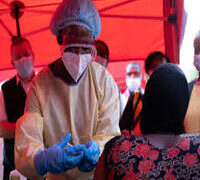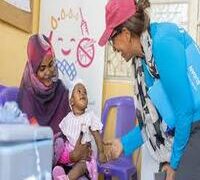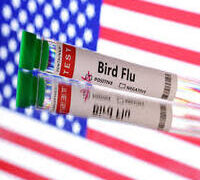Worried about the future of Nigerian children amid rising food crises, malnutrition, low immunisation, insecurity, and poverty, the United Nations Children’s Fund, has urged media practitioners in the country to prioritise children’s rights and bring issues affecting their growth and survival to the front burner.
The international organisation said the media has a role to play in ensuring that the future of children, especially those under the age of five, is protected through its agenda-setting.
UNICEF Nigeria Representative, Ms. Christian Munduate, who made the call on Saturday in Lagos at a symposium, expressed concern at the current state of children in the country, citing the 2024 Situational Analysis of Children and Adolescents in Nigeria.
The report indicated that many children in the country were faced with various challenges that required urgent and short-term interventions.
Munduate said the media has a role to play as the watchdog of society and a powerful change agent by ensuring that the rights of children are guaranteed and protected.
According to her, the media, being a powerful instrument that influences society, has a lot to do with children’s rights and improving their health, nutrition, and education through consistent factual and accurate news and investigative reporting.
The high-powered media symposium themed, ‘Reinforcing the Role of Media in Mainstreaming Child Rights’, was organised by UNICEF Nigeria in collaboration with the Nigerian Guild of Editors and Diamond Awards for Media Excellence as part of its World Children’s Day celebrations.
The event brought together renowned editors, seasoned journalists and broadcasters, senior government officials, private sector representatives, influencers, and advocates who talked about critical issues facing children in Nigeria and underscored the media’s role in advocating for child rights.
Munduate reeled out disturbing statistics on the state of Nigeria’s children that required accurate and thorough media reportage that not only highlights these problems but also proffers solutions.
She said Nigeria has about 110 million children, nearly half of the total population, out of which nearly one in every two children lives in poverty.
According to her, 41 out of every 1,000 newborns die before their first birthday while 2.1 million children remain unvaccinated.
She also noted that additionally, 4.9 million children were in urgent need of humanitarian assistance, while 40% of children under five were stunted due to malnutrition, and eight percent suffered from wasting.
The UNICEF Nigeria Representative urged the media to put these issues affecting children’s rights, education, health, and nutrition on top of its agenda.
Challenging media practitioners to intensify reports on children-related issues, Munduate said, “You need to make it a long-term vision so that you can contribute towards ensuring that government, religious bodies, traditional leaders, community, and families are equipped with the right information.
“These efforts will go a long way in raising awareness, as well as fostering a culture of accountability across society. That is the powerful impact that communication professionals and media outlets can have in driving behavioral change. Your words are powerful.
“Together, you can reach millions with your message, impacting not just hundreds or thousands, but entire communities.”
The president of the NGE, Mr Eze Anaba, in his remarks, said the time for passive journalism was over, urging journalists to embrace solution-driven journalism to tackle holistically, issues affecting children in the country.
“As journalists, editors, and media practitioners, we wield a unique power; the power of storytelling and our role in the mainstream is very important.
“We must uncover and amplify the voices of the voiceless by highlighting the challenges children are facing and advocating solutions.
“These narratives can inspire, mobilise,





































